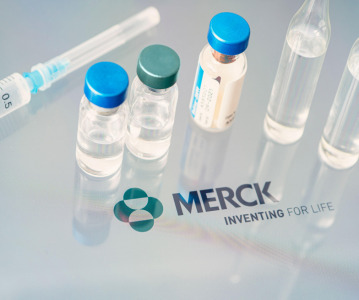Jetting emerges as greener, more efficient alternative in resin manufacturing

Purolite discusses its decision to switch from batch emulsification to Jetting technology
The life sciences industry has witnessed significant change in the last few years, most notably during the COVID-19 pandemic. Global lockdowns forced companies to accelerate digitisation, expand access to remote healthcare solutions and, most importantly, shorten the timeline for the development of life-saving vaccines.
However, not all areas have experienced such rapid advancement. Change has been slow to take hold in manufacturing, with many companies taking an ‘if it ain’t broke, don’t fix it’ approach. The cost of overhauling manufacturing processes and potential requirements around regulatory reapproval are also known barriers.
Nonetheless, innovation in manufacturing technology is occurring in some areas. Purolite, a leading manufacturer of resins used in the bioprocessing industry, serves as a prime example.
CPHI sat down with Fred Ghanem, Purolite’s Business Development Director, during CPHI North America to discuss the company’s shift to Jetting technology and how this relates to future expansion plans.
According to Ghanem, Purolite originally introduced Jetting due to the promise of improved efficiency and capacity. Purolite describes this technology as ‘a patented, industry-changing method that produces agarose beads with a very narrow particle size distribution.’ This means the company can manufacture exact particle sizes, which has unique performance benefits in chromatography processes.
Historically, most agarose resins have been produced using a process called batch emulsification. Batch emulsification produces wide particle size distributions, even after extensive sieving, making column packing reproducibility more challenging and reducing both pressure flow and resolution. From a manufacturing perspective, it is also time-consuming, labour-intensive, and more environmentally harmful.
Jetting provides an environmentally friendly alternative as it produces less solid waste and requires significantly lower volumes of water and solvents.
‘Because you're making the product to the exact particle size that you need, you no longer have to screen and throw away about 40% of your batch,’ Ghanem said, referencing the fact that batch emulsification produces yields as low as 35%.
‘We decided that rather than having the Jetted product as just an improved product line, we would use Jetting for all of our Praesto resins.’
Ghanem noted that while Jetting is common in the food and water treatment industries, its applications in pharmaceuticals have been limited.
‘The pharmaceutical industry has been slow to adapt,’ he said. ‘But at Purolite we've taken it upon ourselves to try to raise the profile of this technology, because that is the future.’
In late 2020, the company announced plans to construct a new 74,000 square foot facility near the company’s headquarters in King of Prussia, Pennsylvania. The new facility will include two new cleanrooms to manufacture APIs and excipients, as well as an agarose manufacturing facility equipped with Jetting technology for the capture and purification of (mAbs) monoclonal antibodies sold under the Praesto® brand.
According to Ghanem, the building is scheduled for completion very soon. On average, it takes 6-12 months to install such a facility when the building is already in place, compared to three years for a batch emulsification facility. Ghanem says this level of agility supports the company’s goal of having multiple manufacturing facilities spread across the world.
Purolite was acquired by Ecolab last year in a deal worth $3.7 billion. Ghanem says this has placed the company on a ‘fast track’ and increased access to new investments. With the completion of its King of Prussia facility, it will be the only supplier with the capabilities to produce bioprocess agarose resins across two independent continents.
Related News
-
News Merck invests US$1 billion in new USA-based vaccine facility
Merck annouces the opening of a new state-of-the-art vaccine production plant in Durham, North Carolina, USA, in efforts to bring pharmaceutical product development onto home soil in face of new import tariffs. -
News US FDA adds haemodialysis bloodlines to devices shortage list
On March 14, 2025, the US FDA published an open letter to healthcare providers citing continuing supply disruptions of haemodialysis bloodlines, an essential component of dialysis machines. -
News Women in Pharma: Manufacturing personal and team success
Our monthly Women in Pharma series highlights the influential lives and works of impactful women working across the pharmaceutical industry, and how the industry can work towards making the healthcare industry and workplace more equitable and inclusive... -
News The next 15 drugs up for negotiation with Medicare include several blockbusters
By now, everyone is quite familiar with the drug price negotiations taking place between drug companies and the Centres for Medicare & Medicaid Services (CMS) in the USA as part of measures being taken to reduce the cost of drugs for patients, to make ... -
News Pfizer may shift production back to US under Trump pharma tariffs
At the 45th TD Cowen annual healthcare conference in Boston, USA, Pfizer CEO Albert Bourla outlined the potential for Pfizer to shift its overseas drug manufacturing back to the US as pharmaceutical industry players weigh their options against Presiden... -
News Experimental drug for managing aortic valve stenosis shows promise
The new small molecule drug ataciguat is garnering attention for its potential to manage aortic valve stenosis, which may prevent the need for surgery and significantly improve patient experience. -
News Trump's federal funding shift could stifle biotech innovation
Over a month into the second term of Donald Trump’s presidency and we have already seen some big changes affecting the healthcare industry. -
News Sanofi receives FDA warning over contamination at manufacturing site
The FDA issues a warning letter to Sanofi over contamination violations found at the Framingham biologics facility, in Boston, MA, USA.
Position your company at the heart of the global Pharma industry with a CPHI Online membership
-
Your products and solutions visible to thousands of visitors within the largest Pharma marketplace
-
Generate high-quality, engaged leads for your business, all year round
-
Promote your business as the industry’s thought-leader by hosting your reports, brochures and videos within your profile
-
Your company’s profile boosted at all participating CPHI events
-
An easy-to-use platform with a detailed dashboard showing your leads and performance







